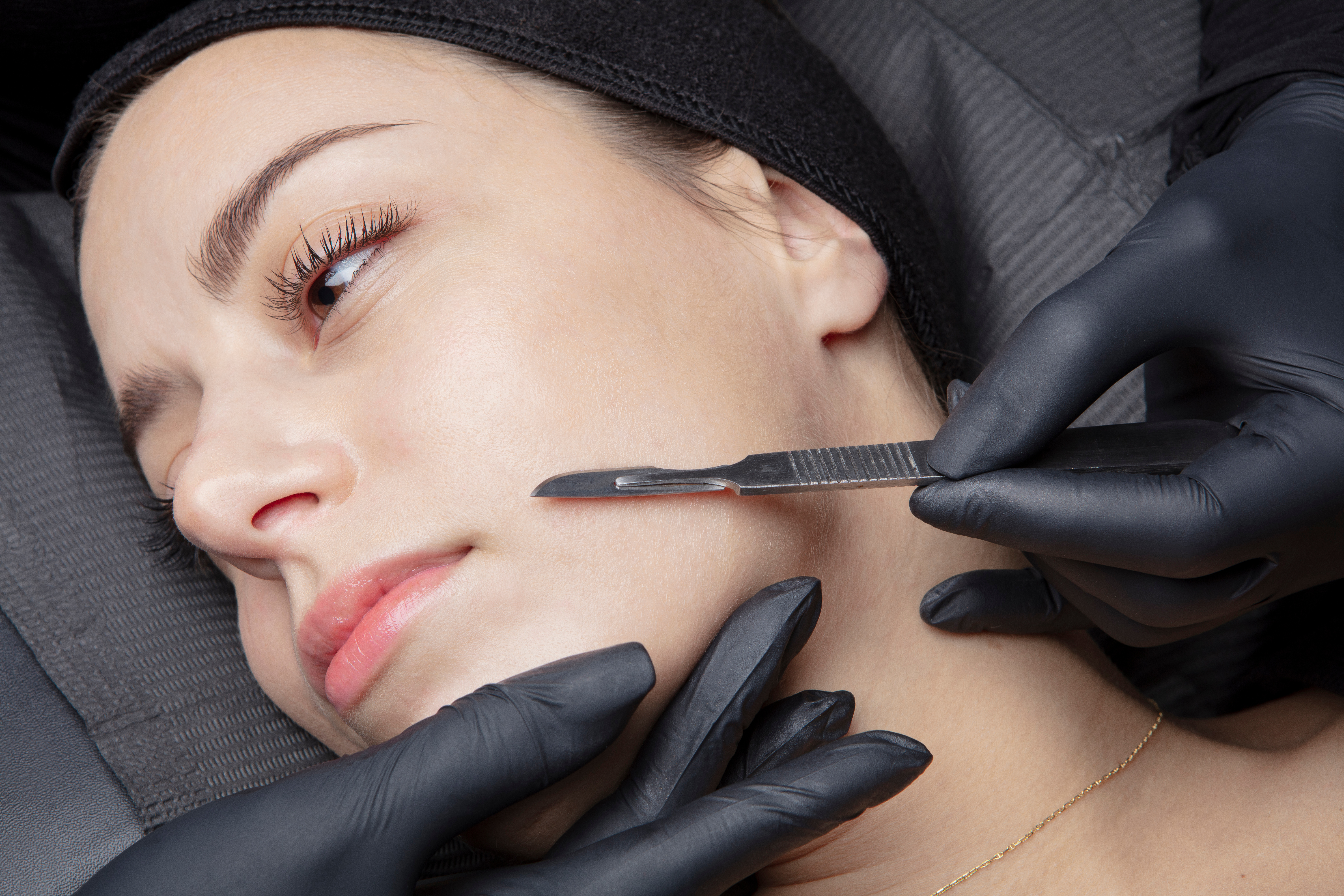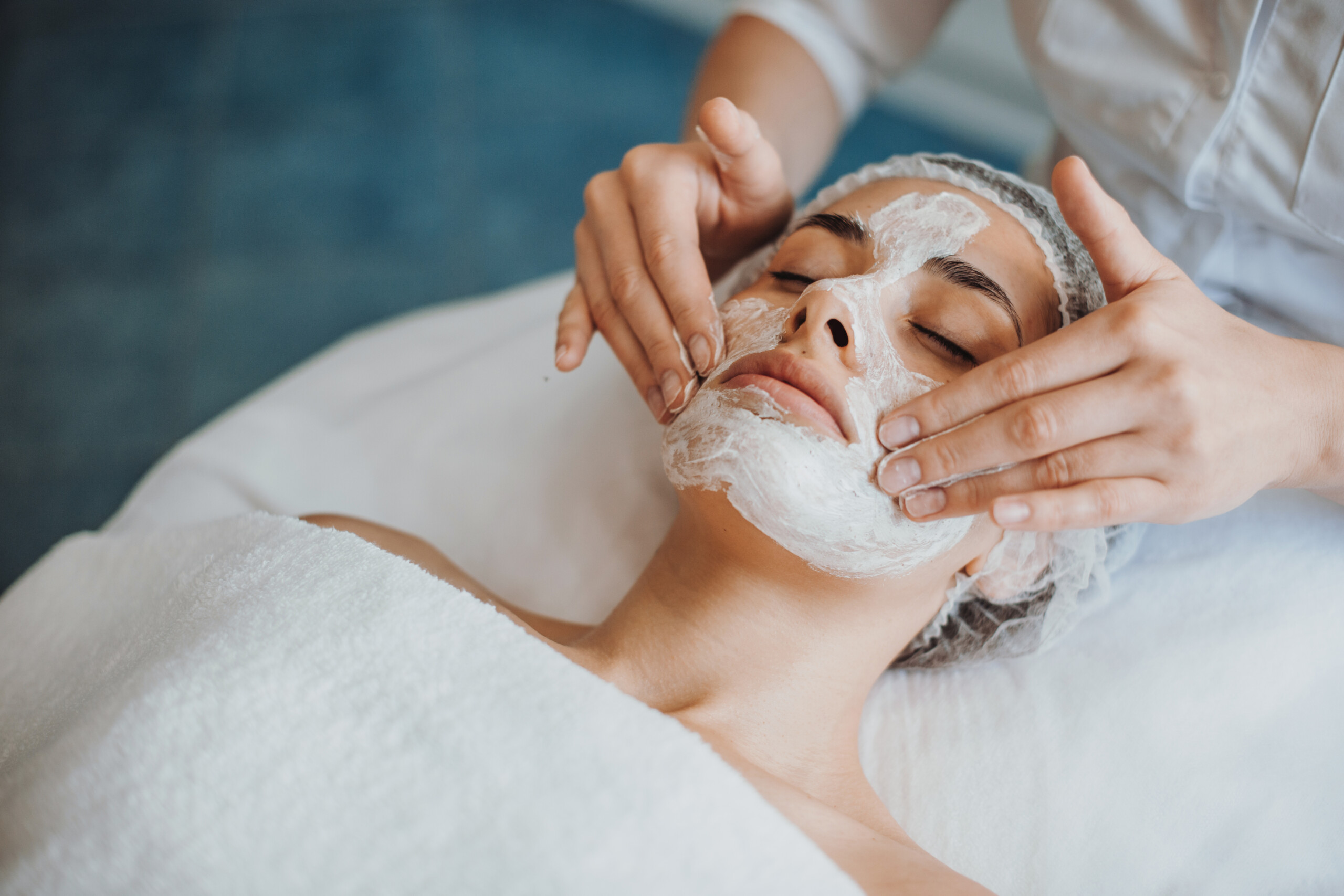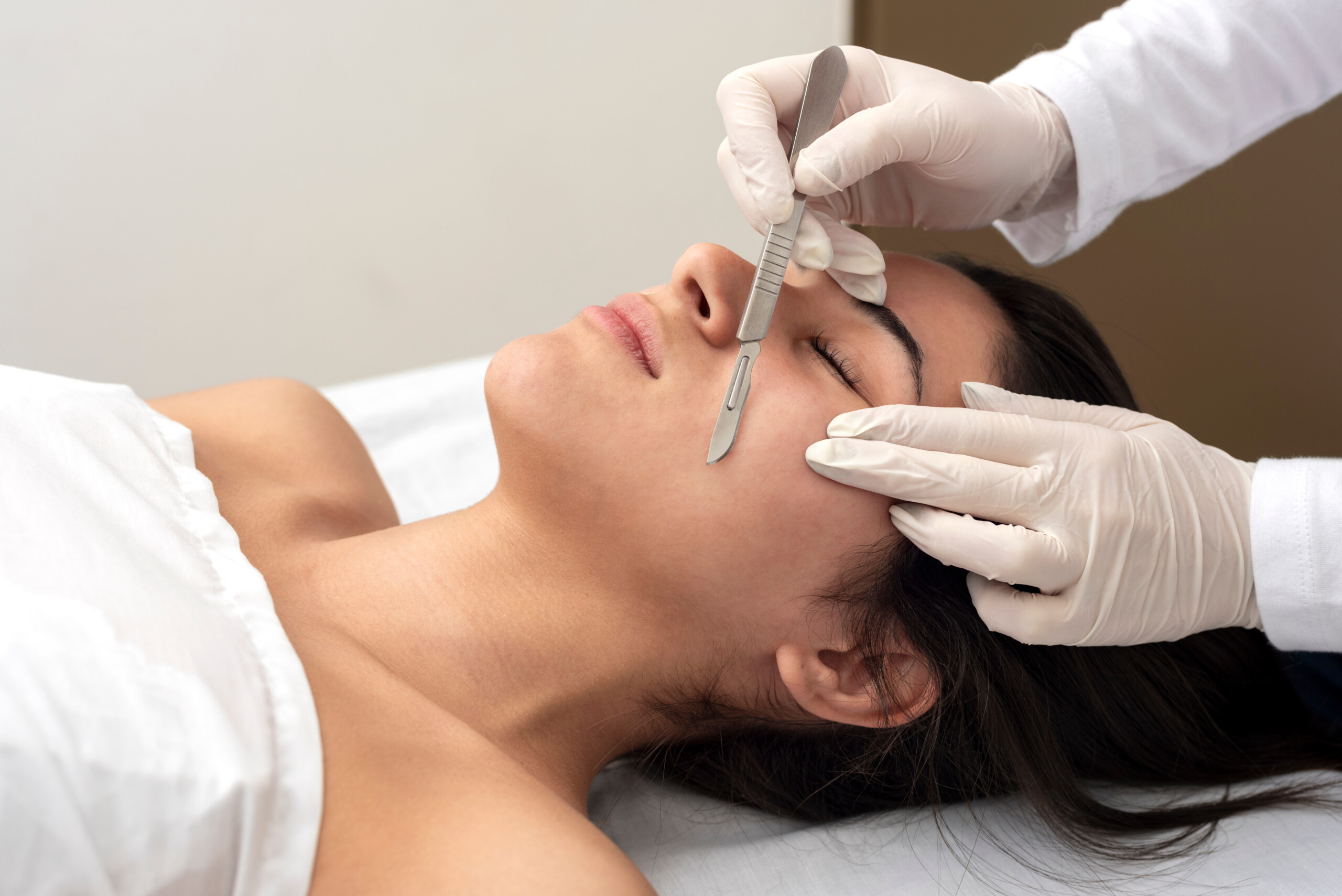Who is suitable for dermaplaning?
Dermaplaning is suitable for all skin types. It’s especially suited to patients who have dull, lacklustre skin with uneven texture caused by dead skin buildup and fine vellus hairs.
Due to its physical (not chemical) form of exfoliation, dermaplaning as a standalone treatment is safe for patients who are pregnant or breastfeeding.
However, please note that The Dermaplaning Facial includes a gentle chemical peel component, which is not recommended for use during pregnancy or breastfeeding.
When should I avoid dermaplaning?
It’s not advisable to have this treatment while you have active acne, cold sores, psoriasis, contact dermatitis or eczema, as the exfoliating action of the fine dermatological blade may aggravate these conditions, and can pose risk of bacterial infection.
Areas of skin with moles, raised freckles or skin tags is not suitable for dermaplaning.
You should also hold off from having a dermaplaning treatment if you are currently sunburnt, experiencing skin sensitivity, or have any area of broken skin.
Will dermaplaning make the hair on my face grow thicker and darker?
No, you won’t need to worry about triggering more noticeable hair growth. Dermaplaning removes the fine covering of vellus facial hairs known as ‘peach fuzz’. Regardless of your hair type, vellus hairs are usually fair in colour and thin in density.
Dermaplaning removes vellus hair at skin-surface level and not the root. It will not change this type of hair or affect how new ones grow. Vellus hair is naturally fine and feathery, and so will grow back the same way.
During your consultation, your Skin & Laser Therapist will assess your skin and hair to determine your suitability for this treatment. If you have thicker, darker hairs, and removing them is your primary concern, we may recommend laser hair removal as the best modality.
How Is dermaplaning different to shaving?
Shaving the face only removes the ‘peach fuzz hair’ vellus hair. Dermaplaning likewise removes vellus hair, but also it clears away skin cells and surface debris, making it a highly effective exfoliating treatment for improving the skin’s texture.
What are some potential risks of dermaplaning?
Dermaplaning is generally considered a safe cosmetic procedure. However, it does carry a risk of redness, irritation or infection, and in very rare cases, scarring, skin thickening or skin discolouration.
This is extremely unlikely at Contour Clinics, as all skin and laser treatments are performed only by fully qualified and experienced dermal therapists, who are at the forefront of industry techniques and safety protocols.































